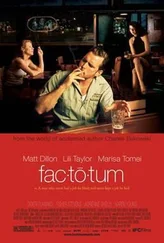“One ten,” corrected Bhakti.
“Ten?” His eyes closed, a disbelieving beat. “With your permission, Mrs. Culvert, I’d like to put you on the admittance list, try and get you in here as soon as possible.”
A flash of panic; Alice sought out her husband, began propping herself upright. “What about Thursday? Crab Fest?”
Howard Eisenstatt, MD, let out an airless gasp. “The Black Tide?” he sputtered. “You have reservations?” An amazed laugh; he shook his head, rubbed his chin. “Mrs. Culvert, you’re obviously a resourceful woman. But this time it’s my turn to be as clear as possible. Leukemia and induction have severely compromised your immune system. By severely, I mean to say: your immune system is as close to nonexistent as is possible. I’m telling you I’d rather you not go out in public at all. If and when you go out, it must be in a controlled environment. This means wearing the mask. The gloves. Antibacterial wash in your purse. No way you’re going to a crab boil.”
Alice absorbed his disapproval, her expression insisting, What, you can’t mean me? However, it was also apparent: she knew she was in the wrong, knew she was caught.
“We’ll go next year,” Oliver said.
She spent a quiet moment looking into her lap, her jaws clenching, the tendons in their hinges flexing. When she spoke, her voice was a whisper. “I keep telling myself I need to accept this. It’s a serious condition and I should treat it.” Flicking her wrist, she gave an idle wave, as if shooing away a nuisance. “Part of me always knew I couldn’t go. You knew it, too, didn’t you, Oli? Humoring me like that, sweet.” Her eyes wandered, back to the source, the place they always returned, the baby carriage. “If it’s all right, Doctor, could my husband and I call you in the morning about the admittance?”
A careful nod, another tight grin. Eisenstatt tapped the marker on the clipboard, as if punctuating it, bringing the discussion to an official end. He started to turn, then waited. “There’s something else. I hesitate to bring it up.”
The nurse-practitioner stepped forward — she’d been quiet for so long that Alice had forgotten she was in the room. Now Dantelle (right, Dantelle) had an expression of patience and authority. “You told me the little one hasn’t had her shots. When she’s in the waiting room, there’s a chance that she carries in germs. She might potentially transmit them to a patient. There’s also a chance she picks up something from a patient. Hospitals are very dirty places. And her immune system is still unformed.”
Oliver couldn’t restrain himself. “Doe was with us in New Hampshire during induction.”
“It’s all right,” Alice said.
“We can’t take the risk,” Dantelle said. “I’m sure you can appreciate—”
“Nurses creamed themselves when they saw her.”
“Oliver.” Alice forced an imitation of cheer. “It’s fine, Dantelle. We’ll just make my appointments for later in the day, when we have the sitter.”
The practitioner looked embarrassed. “I’m not making myself clear. This would be encompassing your chemotherapy as well.”
Eisenstatt patted Dantelle on the meaty part of her upper arm, taking back control of the room. “Hospital policy is clear.”
The doctor did not sound as if he enjoyed relaying this information, nonetheless he was keeping a taut measure of just how much empathy he could dole out. “We don’t worry about how things might be run at other hospitals. Our obligation is to our patients. On the chemo floor, we don’t allow children under eleven. To make sure that everyone is safe — please, don’t bring her.”
“You’d be free to come down to the lobby of the first floor during the early parts of chemotherapy,” added Dantelle. “Before your numbers drop, it should be more than fine for you to go downstairs. She could visit you in the lobby.”
One part of Alice’s practice involved an exercise that asked her to imagine digging into the black, cold earth. Hands dirty, caked with mud, she’d dig until she found a root, taking that imaginary root in her hands, cradling that root, pulling at it, dislodging the thing. Where that root had been, into the space she’d vacated, the exercise asked her to see light. It was time for her to dig. To pull.
“You want me in here for a month. You want to put me through all this again, and you say you’re going to keep my child from me?”
She was holding her little girl, and the doctor was next to her now. “ We want to cure you. We have to bring you in for chemotherapy. We have to find a donor. We have to do this transplant, and we have to start now. Time is a factor. None of this is fair. But we don’t know any other way to keep you around so you can be a mother to your daughter. This is the only way.”
What Life’s Supposed to Be About
AROUND THE TIME Alice Culvert entered her third trimester, a software program known by the acronym Mosaic stepped out of the university computer labs and became commercially available for use with personal computing systems. This was its own, minor upheaval. Until Mosaic, computer users could only enter what was popularly called the Net via designated gatekeepers — America Online, Prodigy, and CompuServe — though there were also smaller, more specifically focused portals. ECHO was particularly popular in Manhattan (and had an added bonus: supposedly as many as forty percent of its members were women), as was the Well (whose membership was rumored at a whopping nine thousand), and MindVox (the go-to choice among cyberpunks, anarchists, and lesbians). With this new program, the dynamics changed. So long as your computer had a fairly consistent modem connection, you could bypass portals and directly access any corner or cranny of the sprawling and amorphous universe known as the worldwide information superhighway. Even better, this new software didn’t charge fees based on the amount of time a user spent online.
Related to this development, or serendipitous with it, was Oliver Culvert’s decision that he could no longer tolerate moving the phone cord from its wall jack into the side of his computer, then putting it back, a half a dozen times a day. To say nothing of the massive pain in the ass of incoming calls interrupting any decent connection. He had a second phone line installed in their new loft. He connected this line to his personal, boxy UNIX terminal. To Alice, he extolled, ad nauseam, the merits of this obscenely fast connection— 42,800 kilobytes per second —how it would allow him to stay connected to the Net, make new contacts, and extend the scope of his consulting business. He believed his own deluded words, Alice knew, but from her vantage point, the shop still wasn’t much more than a front for their illegally zoned living situation, with Ruggles — Oliver’s sharpie of a best friend from undergrad — hustling up clients from the low-end brokerage houses where he had friends, while Oliver and that other unfortunate flunky, the Brow, handled tech support, all at discount prices. This quote unquote business let Oliver fart around with those few stray grad school ideas to which he couldn’t quite say goodbye (i.e., a questing-type computer game in which a college kid undergoes the travails of the Odyssey on his campus). To Alice it seemed like a safe place for her hard-driven husband to catch his breath, tread water, avoid the oncoming tsunami of real life.
Her view did not change as Oliver started spending more time with his new portal-toy-program-game-thing. Or when Ruggles, and the Brow, and Jonathan — Oliver’s first cousin, whenever he stopped by, sweaty after one of his ten-mile runs — joined in. In between calls when some day trader got walked through basic tech support, and those rare projects where an algorithm got concocted on deadline, the group, somehow, she saw, had stumbled into a new useless obsession. This one entailed working in shifts, was fueled by liters of a cheap, overly caffeinated soda (available in bulk at the bottom of the back cooler of the lone nearby twenty-four-hour Korean grocery), and fortified by bags of discount potato chips that weren’t quite tasty but were very nearly digestible (overflowing from that grocery’s dusty racks of chips). She recognized that her husband’s little group was on some sort of quest: tangibly impractical, yes; pragmatically unproductive, definitely. Epic nonetheless.
Читать дальше











